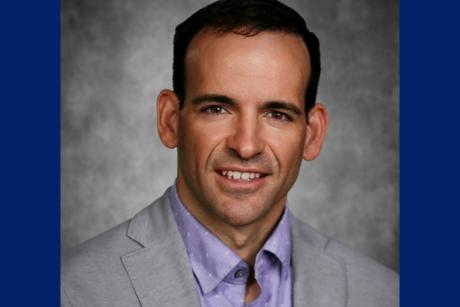Watch the March 5 THink Global event above.
Published March 8, 2024, last updated on December 3, 2024 under Around DGHI
At the beginning of a March 5 Think Global event on food insecurity in Durham, Noah Gibson shared a photo from November 2020 that has become an all-too-familiar image in recent years. Taken in Dallas, it showed seemingly endless lines of cars snaking along a highway, waiting to pick up groceries from a food bank.
“Everyone noticed during the pandemic there were huge lines outside of pantries and on highways to get food,” said Gibson, a Ph.D. candidate in sociology and public policy at Duke. “Food insecurity is one of the most important issues facing us today… that expands everywhere across the globe.”
Durham is no exception, with one in 10 families reporting that they often or sometimes skip meals because they don’t have enough money to buy food. The panel, organized and co-sponsored by a Duke Bass Connections project seeking to enhance the outreach of Durham’s food security organizations, explored how local initiatives and community-driven research are working to curtail food insecurity in the city. Gibson, who is a team leader on the Bass Connections project, moderated the discussion.
Elaijah Lapay, a senior at Duke who is leading part of the Bass Connections work, described the operations and research initiatives of Root Causes’ Fresh Produce Program, a student-run initiative at the Duke School of Medicine that delivers fruits and vegetables to English- and Spanish-speaking households in Durham. Clinic referrals provide clients to the volunteer-driven program, which serves more than 400 families.
Lapay said lack of access to nutritious foods can drive health issues, noting that 33 percent of the program’s participants have hypertension and 25 percent are obese. “When you think about the systems we’re in, people want to know about the people we serve and use that information to support individuals,” said Lapay, who’s pursuing an individualized degree in migrant health and healthcare. “It’s a big motivation for what we do.”
Many families can’t access healthy foods because they are more expensive than fast food, noted Steph Bryant, MPH, a clinical research coordinator for the Duke Center for Childhood Obesity Research. That has led to a crisis where one in five children in the U.S. are obese.
“There’s clearly a connection,” said Bryant, a registered dietician. “Obesity experienced at age 3 is hard to reverse, and interventions need to start [when they’re] younger to prevent any further complications.”
Bryant’s clinic is hoping to address those gaps with a program called Nourish,where families will receive a monetary allowance to purchase healthier food at local grocery stores for a year. Sarah Armstrong, M.D., an associate professor of pediatrics and a DGHI affiliate, leads the research study.
“We interviewed 42 caregivers of children, and some said, ‘We know what to eat, but we need more money to eat it,’” she said. “We hope all families will experience some improvements with their food insecurity, and we expect better health and growth outcomes with targeted food interventions.”
Bryant also noted that offering food assistance in medical facilities may be a way to aid people who may have privacy or security concerns about going to a food pantry.
Scott Brummel, the inaugural assistant director of food and nutrition security for Duke Health, urged community organizations and researchers to work together to better address the complex drivers of food and nutrition access. He noted that food insecurity is only likely to grow as a concern as new immigrants and refugees from war and climate issues relocate to Durham.
“It is driving folks to come to our community, and our community is changing,” said Brummel, who also manages Root Causes’ fresh produce program. “We need to figure out how to adapt to help those coming from all over the globe. This is a plea for you to understand your work and your place in what we’re doing.”


